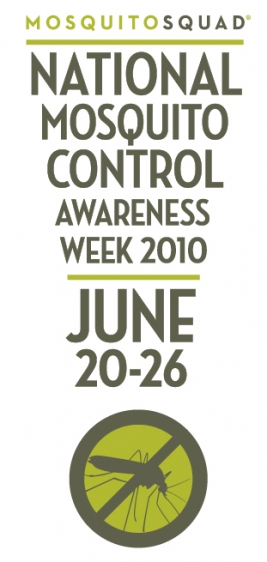 What is tetanus?
What is tetanus?
Tetanus is a severe disease infection caused by bacteria called Clostridium tetani. this bacterium can be found throughout the world in the soil and in animal and human intestines. the disease may result in stiffness of one’s jaw muscles and other muscles.
The infection causes painful tightening of the muscles, usually all over the body. It can lead to “locking” of the jaw, which makes it impossible to open your mouth or swallow. If this happens, you could die of suffocation.
If you get tetanus, there is usually a long course of treatment. the tetanus vaccine can prevent tetanus but its protection does not last forever. Adults should get a tetanus shot, or booster, every 10 years. If you get a bad cut or burn, see your doctor–you may need a booster.
What are the signs and symptoms?
• Symptoms may include:
– Headache– Stiffness of the jaw (lockjaw)– Severe muscle spasms– Sweating– Fever– Stiffness of abdominal muscles– Difficulty swallowing
• Lockjaw is one of the most dangerous symptoms because it can lead to death by suffocation
• Symptoms usually begin about 8 days after infection, but may range in onset from 3 days to 3 weeks
What cause tetanus?
Tetanus is caused by a bacterium called Clostridium tetani, which is found in soil and animal manure. Spores of the bacteria are picked up when a wound is contaminated by, for example, garden soil. the wound may go unnoticed and the infection may not seem severe, but the bacteria release a poison called a neurotoxin that attacks the nervous system and causes problems such as muscle spasm.
Anyone who has a contaminated wound may develop tetanus. Farmers and those working with soil are at increased risk. in developing countries, the custom of dressing a newborn baby’s umbilical cord stump with animal dung often leads to neonatal tetanus.
If you suspect tetanus, get urgent medical help.
The diagnosis is usually clear from the symptoms and history. the bacteria may be detected in the wound, but as tetanus is a medical emergency treatment is usually started based on symptoms alone.
What are the complications?
In four out of 10 people tetanus causes death. Spasms or convulsions may be violent and you can stop breathing or have a heart attack. Other complications of tetanus include:
- pneumonia (lung infection) and other infections
- fractures – due to spasms or convulsions
- breathing problems
- muscle problems (rhabdomyolysis)
- coma
Treatment
In most cases of tetanus, the illness is severe, and there’s a risk of death despite treatment. Death may result from constriction of airways, pneumonia or instability in the autonomic nervous system. the autonomic nervous system is the part of your nervous system that controls your heart muscles, other involuntary muscles and glands.
Treatment may consist of certain medications, as well as supportive care.
Medications
- Antitoxin. your doctor may give you a tetanus antitoxin, such as tetanus immune globulin (TIG). However, the antitoxin can neutralize only toxin that hasn’t yet combined with nerve tissue.
- Antibiotics. your doctor may also give you antibiotics, either orally or by injection, to fight tetanus bacteria.
- Vaccine. You’ll also need to receive a tetanus vaccine in order to prevent future tetanus infection.
Supportive therapies
Tetanus infection often requires a long period of treatment in an intensive care setting. you may need drugs to sedate you and to paralyze your muscles, and that may result in shallow breathing that needs to be supported temporarily by a ventilator.
People who’ve had tetanus often recover completely. However, some people have lasting effects, such as brain damage caused by a lack of oxygen when muscle spasms in the throat cut off the airway.
Prevention
Vaccination
There is a vaccine to prevent tetanus. this is given in the arm or the thigh. you will need three doses of the vaccine with a months break between each when you are first vaccinated. in the UK, this is usually given to babies when they are two, three and four months old.
Children will then receive a booster when they are about three, usually at pre-school entry, and again 10 years later before they leave school. you should then have protection from tetanus for life. you may need a booster of tetanus if you are travelling abroad and haven’t had a booster in the last 10 years. ask your GP for advice.
If you were not immunised as a child you can get the first three doses of the vaccine at any age. you will then need a booster 10 years later. Generally, only five doses of the vaccine are needed to protect you for life.
Women can be given the tetanus jab during pregnancy to prevent tetanus.
If you have had tetanus you can get it again and need to be immunised.
If you have a cut and haven’t been immunised
If you have a cut or weeping wound, such as a burn, and you haven’t ever had a vaccination or haven’t had a tetanus jab for more than 10 years, you need to have a booster dose of tetanus as a precaution. you may also be given a dose of tetanus immunoglobulin which are proteins (antibodies) to help your body fight any tetanus infection you might develop.
Consult your doctor with these questions
Are my immunizations up-to-date?
Is there a test after an injury that can determine if the tetanus disease is present?
Are there any reactions or side effects to tetanus vaccine?
If tetanus is present, what is the success rate of eliminating the disease and its toxins?
Are there any after effects or any residual conditions left by the disease?
- Yellow Fever: a potentially fatal viral infection
- Anthrax – an infectious disease
- Endemic Infectious Disease: African trypanosomiasis (sleeping sickness)
- Bites and stings from dangerous animals